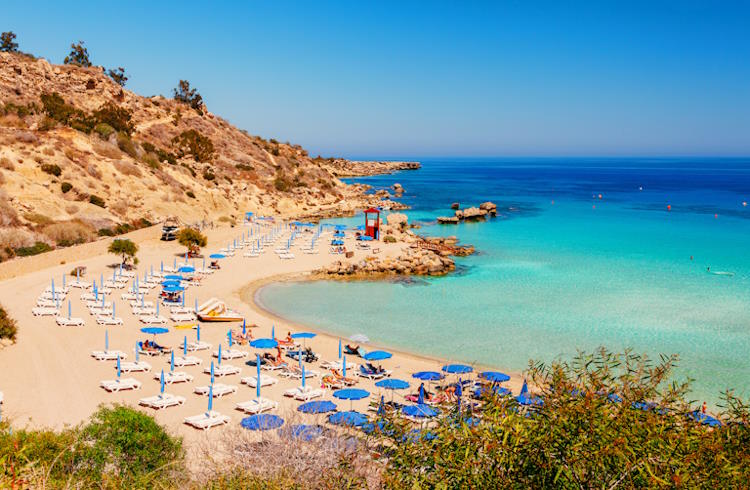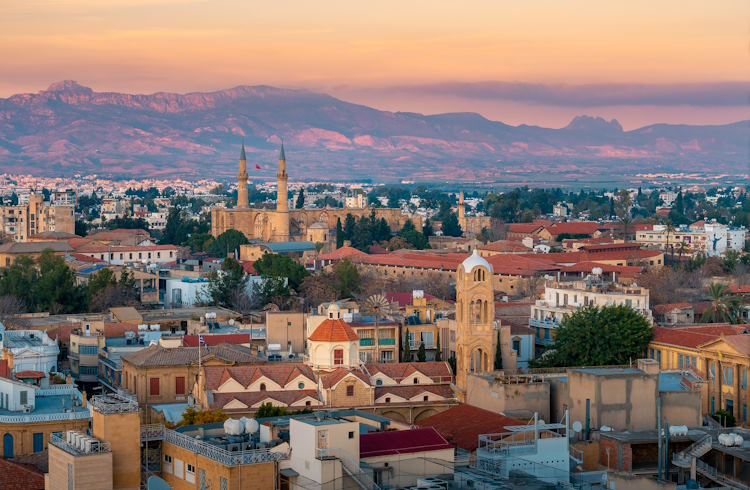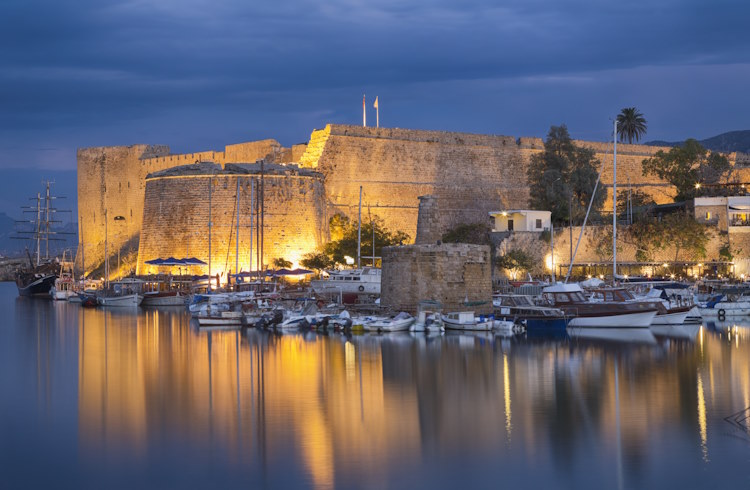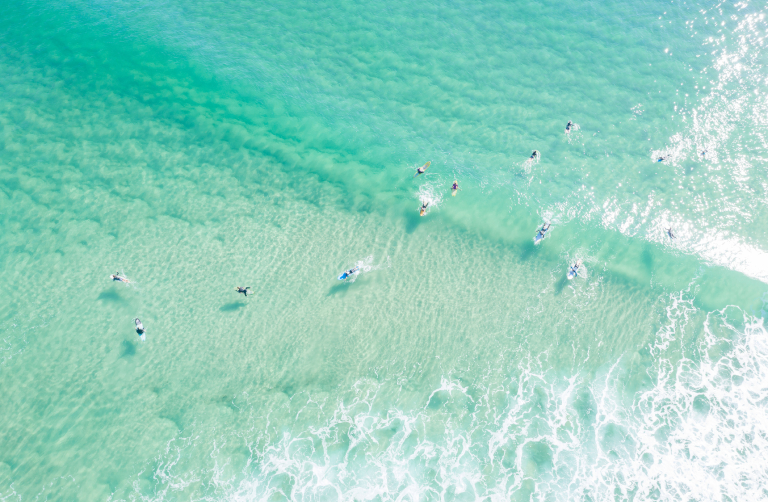Is Cyprus Safe? What Travelers Need to Know
Divided by a UN buffer zone into northern and southern regions, Cyprus is a beautiful Mediterranean island with a complex history. Here’s what to know about visiting Cyprus and how to stay safe.
 Photo © Getty Images / Oleg_P
Photo © Getty Images / Oleg_P
Cyprus is a Mediterranean island rich in history and cultural heritage, but it also carries the legacy of a prolonged conflict between Greece and Turkey. Understanding the island's political dynamics and current safety conditions is essential for a happy visit. Here's all you need to know if you’re planning a trip to Cyprus in 2024.
- A brief history of Cyprus
- Cyprus today
- General safety tips for travelers to Cyprus
- Logistics of traveling in Cyprus
- Cyprus in the news
- Is it safe to travel to Cyprus right now?
A brief history of Cyprus
The conflict in Cyprus has roots going back centuries, but a quick précis of its past 150 years is all we need to concern ourselves with here. The British Empire assumed control of Cyprus in 1878, while the Ottomans retained nominal ownership. Greek Cypriots welcomed British rule, hoping for union with Greece (Enosis).
After the Ottoman Empire sided with the Central Powers in World War I, Britain formally annexed Cyprus in 1914. Greek Cypriot agitation for Enosis continued under British rule, culminating in the October Revolt of 1931. In response to the uprising, British authorities burned the government house and implemented measures such as banning political parties and prohibiting the flying of Greek flags.
Post-World War II, the Enosis movement intensified. Turkey supported the Turkish Resistance Organisation, advocating for Cyprus's division. In 1960, Cyprus gained independence with a power-sharing government, which collapsed in the 1960s, leading to violence.
In 1974, a Greek-backed coup prompted a Turkish invasion, which resulted in thousands of deaths and the displacement of approximately 200,000 Greek Cypriots from the north and around 60,000 Turkish Cypriots from the south, with many Turkish Cypriots resettling in the north under UN auspices.
Cyprus today
The island remains divided. The Turkish Republic of Northern Cyprus (TRNC), recognized only by Turkey, governs the north, while the internationally recognized Republic of Cyprus controls the south. The Green Line, a UN buffer zone, separates the two regions. The situation is relatively stable, with borders open for movement between the north and south.
General safety tips for travelers to Cyprus
Cyprus is generally a safe destination for tourists, with low levels of violent crime. But travelers should take standard precautions to ensure their safety.
Petty theft
While violent crime is rare, petty theft such as pickpocketing can occur in crowded areas. Use hotel safes for valuables, avoid making displays of your wealth and be aware of your surroundings, especially in busy markets, public transport and tourist attractions.
Nightlife
Cyprus has a bustling nightlife, especially in cities like Ayia Napa and Limassol. Drink-spiking is not uncommon. Watch your drink being prepared, never leave it unattended, and be cautious of accepting drinks from strangers. Stay in well-lit, populated areas and use licensed taxis to return to your accommodation.
Drug laws
Both parts of Cyprus enforce strict drug laws with severe penalties for possession, use and trafficking. Being found with even small quantities of proscribed substances can result in heavy fines and imprisonment. If approached by someone offering drugs, firmly decline and walk away.
Health and emergency services
Cyprus has modern healthcare facilities, particularly in the southern part of the island. Ensure you have adequate travel insurance to avoid significant costs in medical emergencies.
Local customs
Dress modestly when visiting religious sites, churches, and mosques, by covering shoulders and knees, and for women, sometimes covering the head. Discussions about the political situation on the island can be sensitive, so approach them with caution.
LGBTQ+ safety
Homosexuality has been legal in the Republic of Cyprus since 1998 and in the TRNC since 2014. Additionally, civil partnerships have been recognized in the former since 2015, providing significant legal protections for LGBTQ+ individuals.
Cyprus is relatively safe for LGBTQ+ travelers, particularly in its major cities where legal protections and social acceptance are stronger. Social acceptance can vary, however, so be aware of the local cultural climate. The island is becoming increasingly inclusive, as evidenced by the bi-communal Pride celebrations.

Logistics of traveling in Cyprus
The Pergamos and Strovilia crossing points between the Republic of Cyprus and the TRNC are under the jurisdiction of the British Sovereign Base Areas. They are typically open to EU citizens and legal residents of Cyprus, but non-EU citizens may face restrictions. Non-EU citizens must enter Cyprus through recognized legal ports of entry such as Larnaca and Paphos airports or the seaports in Limassol and Larnaca.
Entry into the Republic from the TRNC via non-recognized points like Ercan Airport is considered illegal and can result in entry refusal. Non-EU travelers should verify entry requirements and comply with both Cypriot and TRNC regulations, ensuring they have valid travel documentation and any necessary permissions to avoid complications.
Cyprus in the news
The conflict in Gaza has heightened tensions in Cyprus due to its strategic geopolitical position and historical ties. The south hosts British military bases at Akrotiri and Dhekelia, which have reportedly been used for logistical support in Israeli military operations in Gaza. This involvement has sparked local protests and increased scrutiny from activists.
Due to its reliance on Turkey for political and economic support, the TRNC’s stance on regional issues, including its position towards Israel, tend to be heavily influenced by Turkish interests. Safe to say that Turkey has traditionally favored Palestinian causes and been critical of Israel.
Hezbollah, a Shiite Islamist political and militant group based in Lebanon, has warned that Cyprus could be targeted if it allows Israeli use of its facilities.
Is it safe to travel to Cyprus right now?
Despite its complex political history and ongoing division, Cyprus offers travelers a warm welcome, and can all but guarantee a safe and enriching experience. Efforts for reunification may have stalled, yet both sides continue to find ways to cooperate, and they are united in their love of the island, whatever their other differences.
The Republic of Cyprus, an EU member, has well-developed infrastructure and lively tourist hubs like Nicosia, Limassol and Larnaca. In contrast, Northern Cyprus offers quieter pleasures in the castles, scenic beauty, and Roman ruins to be found in towns such as Kyrenia and Famagusta.

Related articles
Simple and flexible travel insurance
You can buy at home or while traveling, and claim online from anywhere in the world. With 150+ adventure activities covered and 24/7 emergency assistance.
Get a quote
No Comments